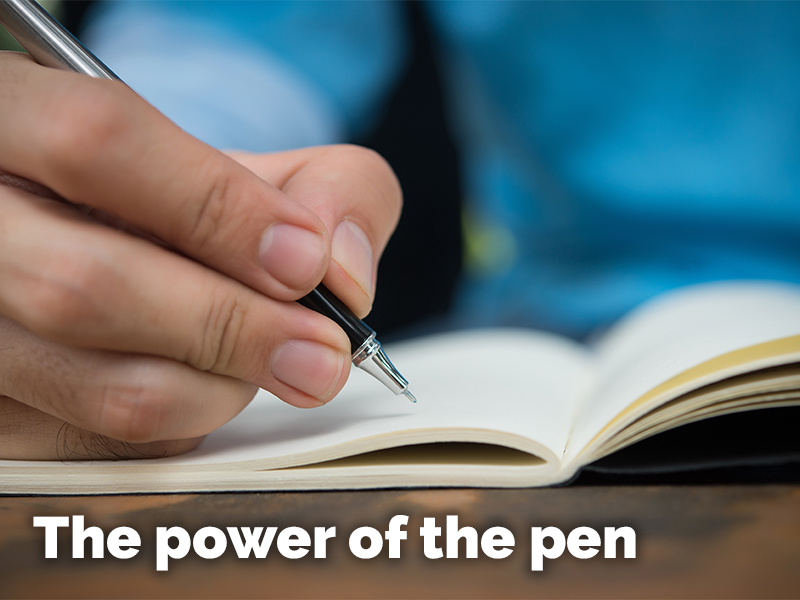LA trustee and young ambassador lead Ella Dove explains the benefits of writing for wellbeing
You don’t have to be a writer to find solace in writing. When I embarked on a 10-week course in Therapeutic And Reflective Writing with the Professional Writing Academy, I wasn’t sure what to expect. As an amputee and trauma survivor and also a journalist and author, I knew I wanted to combine these elements of my life in a positive and supportive manner, and yet it was with trepidation that I began my course. A perfectionist by nature, I worried about not doing the writing exercises ‘well enough’, not producing poetry, for instance, that was worthy of sharing with the group.
However, the learning curve that came from letting go of my preconceptions and my perfectionism was huge. I discovered that when it comes to therapeutic and reflective writing, it is process, not product, that counts. You don’t have to be a writer to experience the benefits of writing for wellbeing. In fact, it’s probably better if you’re not. The exercises we did, such as freewriting and timed writing, encouraged digression, teaching us to follow and embrace our thought processes, however, fragmented they may seem. I surprised myself on multiple occasions, discovering hidden depths to my psyche that I had subconsciously suppressed, emotions I didn’t even realise were there until I allowed my mind to wander through my pen scratching across the page.
Social psychologist Dr James Pennebaker has been on the forefront of expressive writing research for many years. ‘As the number of studies increased,’ he has said, ‘it became clear that writing was a far more powerful tool for healing than anyone had ever imagined.’ I didn’t fully recognise this before my course. But now, as I embark upon teaching writing for wellbeing workshops, I can see first-hand the healing that the simple act of writing can achieve. Whether for relaxation or mindfulness, or to exorcise the most deeply buried traumas, the toughest of demons, this glorious medium should never be underestimated.
Writing really can heal. A journal can become like a trusted friend, a place to confide and to express, to set down all those feelings you aren’t able to vocalise, or feel you can’t share with others. It can feel liberating, reassuring and relieving all at once. It is an immensely powerful therapeutic tool – and the best part is, it can be done by anyone, anywhere at anytime.
Try it. Write for 15 minutes each day, at a time that suits you, uninterrupted, four days consecutively. Set a timer, and allow your mind free range. Anything you think, you write. And trust me, because I have learnt first-hand, you might just surprise yourself….

